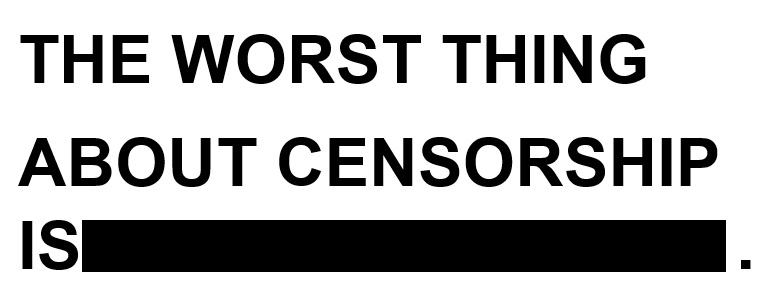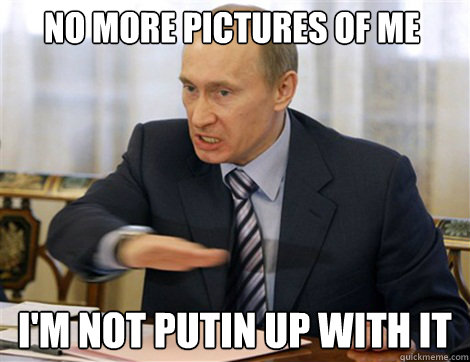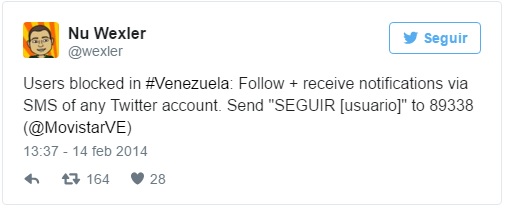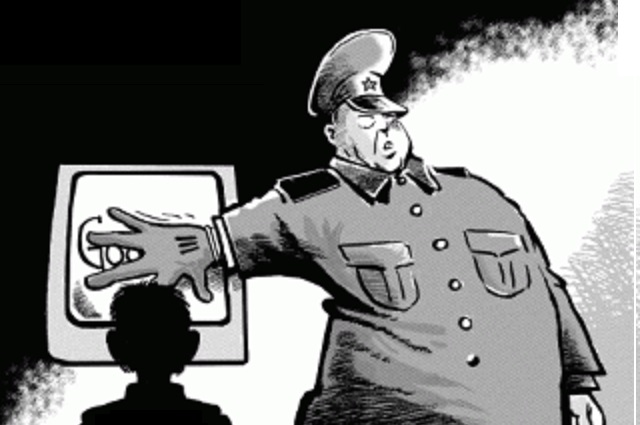Originally published at Prodavinci.com
So far in this decade, the Internet has shown its power to share ideas and promote freedom. The web has allowed the development of ‘citizen journalism’ that already proved successful: it denounced government repression and an excessive use of the force the so called ‘Arab Spring’ in Tunisia, Libya, and Syria, capturing videos, images and texts that were reported live to the world, passing all sorts authoritarian regimes censor systems. The internet has defied dictatorships that ruled over decades, and social media allowed the articulation of many demonstrations against corruption and social injustice in Brazil when the World Cup was about to begging, and as a way of spreading information in Venezuela during student protests of 2014.
The Internet also played a leading role in the Umbrella Revolution in Hong Kong, that gathered more than 100.000 people, something that didn’t happened in China since the Tiananmen Square Protests of 1989, in which protesters were dispersed by a bloody skirmish of tanks and infantry, ordered by the Chinese government.
Recently in Hong Kong, demonstrators demanded changes in the election system of the ‘Special Administrative Region of the People’s Republic of China’. Rallies lasted 2 months and 23 days, and they were organized throughout an application called FireChat, originally developed in San Francisco.
Authoritarian regimes have increasingly limited communications, and they’ve also have tried to control information on the web, by monitoring online activity, and forbidding Internet access and blocking contents.
When we asked psychiatrist Javier Guevara, why governments feel threatened by the web, he answered: “On the Internet there are many heads, and the power loses control. The whole representation system of an authoritarian government is based on a parallel reality. It’s a psychosis. Dictatorships do not communicate with individuals: they inform the mass. The craziness of power is to believe itself as a god”.
Institutionalized Censorship
Different from Noth Korea, country which blocks every Internet connection to its population, China, on the other side, has encouraged its use to accelerate its economy. China has surpassed United States number of users connected to the Internet, by reaching 641 million, and it has one of the biggest markets of the planet, but its government doesn’t stand free expression of ideas and opinions, not even the coordination of public gatherings.
The Great-Firewall (as a reference to China’s Great Wall), it’s a sophisticated system with which People’s Republic of China censors the Internet since 1998, blocking western websites, keywords in search engines, and monitoring content and social-media interactions, in order to avoid ideas diffusion and social movements articulation.
According with a poll made by the European Union Commerce Chamber in China, between106 enterprises with offices in China, 86% of the enterprises of the Commerce Chamber have been affected negatively by the blockade on the internet.
Jörg Wuttke, President of the European Union Chamber of Commerce in China says that “it is worrying how Internet restrictions can affect and limit the growth and investment in technology, which nowadays is vital to the development of China”.

Two million integrate the Division of Public Opinion Analysis of the Propaganda Department of the Communist Party in China, as reported by newspaper Beijing News. Their task is to is to examine millions of messages published on the web and social media like Sina Wibo, considered as the ‘Chinese Twitter’. After checking the content, they pass the information to their superiors, who decide what to do.
These 2 million of Internet policemen are capable of break up possible demonstrations before they even happen, tracking messages and blocking the connections. The number of people censoring the web is higher than the number of armed forces that is as high as 1.5 million people, according China’s Ministry of Defense.
“I just needed to search for key words, check negative opinions and write a report”, says Tang Xiaotao, a man hired by the Government to monitor the Internet. “”We received training to analyze posts and how to handle possible crisis situations”, Xiotao concluded.
The software used costs 490 thousand dollars and it is employed by “analysts of public opinion”, to track what it is being said or discussed according to the number of comments and the number of times a comment has been shared. If a comment reaches a 40/100 points, the system will alert the analyst so that he can make decisions and take action.
If a person is caught doing anything that could infringe the “Great Fire-Wall”, he or she can be punished with a fine of 1.800 dollars for “defaming the Government” or “uploading offensive content”. Depending on the gravity of the action, the person could even spend time in jail, as Britney Wilkins reports.
Stella Wu, a young Chinese student of law in the University of Texas, spoke with Prodavinci about the situation of Internet in her country. Wy says that Internet censorship is not really a problem for Chinese people. “Many people of my father’s generation don’t even know that Internet censorship exists, while younger generations use the current technology to avoid the censorship systems, and get access to every Internet corner”. Wu doesn’t think that the government actually punishes people. “As long as you don’t try to overthrow the government, o spread any rumors, I’m sure that nobidy will care what you write on the web”.
However some people have already felt the consequences of the Chinese government’s wrath. Liu Xiaobo, Nobel Peace Prize winner in 2010 participated in the Letter 08, signed by 300 Chinese citizens, in which they demanded more freedom of expression, human rights, and free democratic elections, the government sentenced him to 11 years in jail for “inciting subversion of state power”.
Jialian York, director of the International Department for Liberty Expression of the Electric Frontier Foundation says that “History is repeated in the world. In Kuwait, China, Marrocco, United Araba Emirates, and in other countries, bloggers are being pursued by Governments that seek to silence any critics with absurd judicial charges”.
Xiaobo’s wife, Liu Xia, remains in house arrest since her husband won the Nobel Prize. Amnistia International transmitted a video on YouTube, showing a group of activists that could break through the guards on the day of her husband’s birthday, because she cannot see him.
Draconian Legislation
Different countries have made the executive and legislative power an instrument to repress any expression of freedom on the Internet.
This month, Russian Government forbid the use of memes that include a public figure image. The measure appears after a high level of memes using the image of President Putin proliferated on the Internet. In Vietnam, the Ministry of Information and Comunications made the ordinance 72, to restrict the use of blogs and social media. The ordinance limits the use of blogs to personal information, forbidding comments about news, bylined articles or any other information of public interest. On Africa, Gambia’s National Assembly released an act that allows the government to prosecute anyone “spreading false news about the government or burocrats will be punished with 15 years in jail, or a fine of 3 million Dalasis (64,000 euros)”.

This month, Russian Government forbid the use of ‘memes’ that include a public figure image. The measure appears after a high level of memes using the image of President Putin proliferated on the Internet. In Vietnam, the Ministry
Venezuela joined Russia’s policy against memes, when its National Assembly approved an agreement responding to a meme sent from the Miranda governor’s, Henrique Capriles, official Twitter account. The meme uses Tibisay Lucena’s, president of the National Electoral Council, image in reference of a soccer match. He was later accused of having a “misogyny conduct”, and an “antipatriotic aspirit”. Two days later, Mr. Capriles was sued.
In Saudi Arabia, religion has been in charge of promote censorship. The theocratic monarchy bases its legal system in Sharia, a rigid interpretation of Islam that serves as a code of conduct that prohibits criticizing the government and religion. This model has allowed the criminalization of any political dissent in the country.
Since Internet arrived in the country in 1998, it has been controlled by the government. In January, 2011, Saudi government approved the Executive Regulation of Electronic Publish Activities, a law that establishes conditions in order for someone to have a website operating in the country.
According to Reporters Without Boarders, the article #7 of this law establishes that web versions of conventional media must be approved throughout a license signed by the Ministry of Culture and Information. Anyone who wishes to have a website in the country must present documents that prove that they hold a secondary education diploma, and that they have good conduct.
This law establishes penalties of 100,000 riyals (mora than 21.700 dollars), and a temporal or permanent forced closure of the website to people or organization who perform any actions against the “principles of the realm”.
In different countries, legislation has been used to criminalize bloggers and journalists who seek to spread their thoughts and opinions freely. According to Human Rights Watch, Saudi Arabia created in 2008 a specialized criminal court which was being “used to criminalize pacific dissidents and human rights activists by pressing charges that violate the right to a fair trial”.
Internet’s Monopoly
The Enterprise of Telecommunications of Cuba (ETECSA) is the only Internet provider in the island and it is operated by the government.
The socialist intention to make every citizen equal does not apply in the island. Internet penetration is as low as 25.7% according to Internet World Stats. However NGO Freedom House says that only 5% of the people in Cuba have Internet access without content restrictions. For long Cuban authorities have accused the US embargo of being responsible for their technology infrastructure problems.
Nonetheless, Venezuela provided Cuba with a optic fiber cable, called Alba-1, allowing the island to have a high speed Internet connection. And 4 years later, the story repeats. Internet access remains limited to government bureaucrats and the commercial offer of the ETECSA is exclusively directed to foreigners who reside in Cuba. ETECSA’s website says “Internet service is given to legal persons, and fereigners with remporal or permanent residence in Cuba”.
Until this day, Cuban government has censored the Internet by monopoly, and the Department of Revolutionary Orientation, has been in charge of blocking any content considered “anti-revolutionary”.
Even thou the Internet situation looks negative, it seems that new winds are going to Cuba. Since the dialogues between the United States and Cuba started recently, telecommunications have been included in the bilateral agenda. Cuba now has announced the opening of 35 zones of navigation with WIFI technology for the general population.
Not far from Cuba, there is Venezuela, where the problem is not exactly monopoly but the government has a high level of interference with Internet suppliers. Venezuelan President, Nicolas Maduro, ordered to block 50 web sites for publishing money exchange information, and for being responsible of “the economic war in Venezuela”.
Also, during student protests in Venezuela that started on February, 2014, Nu Wexler, manager of Communications of Twitter, confirmed that CANTV (government controlled telecommunications provider) was blocking the access to photos of demonstrations published in the microblogging site Twitter. Wexler suggested an alternative to acess information.

Fugitives of Censorship
While there are governments that use sophisticated systems of censorships, there are also organizations trying to fight controls, and activists who oppose the denounce censorship.
Trial Tracker Blog (Freedom Matters)
Beginning 2014, the Government of Ethiopia incarcerated 6 bloggers and 3 journalists of the group Zone 9. The team had developed a blog in Amharic –official language of Ethiopia– in which the promoted human rights, social justice and freedom of expression.
At the current time, Zone 9 bloggers wait a sentence of 5 to 10 years in Kalinto and Kality jails for “conspiring to commit acts of terror and attack the constitutional order”.
We contacted Endalk Chala, the only member of the Zone 9 bloggers who saved himself from being incarcerated in Addis Abeba. When authorities issued the capture order, Chala, who was a journalism professor at the University of Arba Minch, had already left the country to pursue doctoral studies in the United States.
In spite of being far away from home, Endalk Chala has not forgotten of his imprisoned colleagues. Chala continuously reports the trial status in a blog called “Trial Tracker Blog (Freedom Matters)”. “The blog has helped us create collaborative networks and get the global public’s attention about censorship and Ethiopia’s journalism struggles”, says Chala. Hashtag #FreeZone9Bloggers has been many times a trending topic in Ethiopia with more than 10,000 tweets. The blog seeks to support Zone 9 and help establish collaborative networks to fight against censorship globally.
Collateral Freedom
Reporters without Boarders enabled a system of “digital mirrors” to break to content block over 9 censored websites in 11 different countries (Rusia, China, Cuba, Iran, Vietnam, Kazakhstan, Uzbekistan, Turkmenistan, Saudi Arabia, Arab Emirates United and Bahrein.
The name of the operation, which seeks promote liberty of expression is called Collateral Freedom. The system implemented by the NGO consists of creating live replicas of the blocked website, located in the servers of avant-garde enterprises such as Google, Microsoft, and Amazon.
Governments could block these replica websites, but Reporters without Boarders says that it is probably they won’t because they would have to block every connection to Google, Microsoft and Amazon’s servers, which –as a collateral damage– thousands of enterprises that use cloud computer services will have to stop operations, and such action would have negative economic and political consequences.
Some of the websites that have avoided being censored by the government are: The Tibetan Post, blocked in China, and Grani.ru, blocked in 2014 by Russia, after it covered the crisis in Ukraine. Closer, in the Caribbean, Collateral Freedom also helped building an alternate route to access Hablemos Press, an independent agency, integrated by 40 correspondents, that denounces human rights violations committed by the Cuban army in 15 provinces of the Isle.
10 years in jail
50 times the whip hit Raif Badawi’s back. His sentence indicated that besides paying for a 266 thousand dollars fine, he was sentenced to 10 years in prison and to 1000 whip lashes. The punishment was meant to be divided in 20 weeks: 50 lashes every Friday.
The court’s decision was given in 2013, but he was arrested on 2012 for opening a blog called “Saudi Free Liberal Forums”, in which he criticized the government of Saudi Arabia. Jeddah’s court sentenced him for “violating Islamic values and spread liberal thoughts”.
From jail, Badawi became a freedom symbol. On April 1st of 2015, a book named “1000 lashes – For saying what I think” was released in the german market. The book has Badawi’s texts translated to german. In his work, the blogger alerts about religious extremism, criticizes women’s conditions in Saudi society, and regrets how frighten the Saudi Arabian government is about culture and education. After receiving 50 lashes on January 2015, he was supposed to resist 50 more every Friday, but the lashes have been postponed. People hope that King Salman bin Abdulaziz grants clemency to the blogger, as he usually does to prisoners on the eve of Ramadan.
Secretary General of the United Nations, Ban-Ki Moon, has expressed his concern about online censorship: “I’m concerned about the way States abuse laws to control Internet access.“It is troubling that security programs are becoming highly aggressive. I understand that national security and criminal activities justify some exceptional interventions of monitoring, but the main goal is to safeguard human rights and fundamental liberties”, said Ban-Ki Moon.
Ban-Ki Moon’s statement refers not only to authoritarian regimes, but also to western democracies like the United Kingdom and the United States who now appear in the list “Enemies of the Internet of 2015”, of Reporters without Boarders, due to their intense intrusive surveillance programs.
We spoke with Derechos Digitales NGO director, Claudio Ruiz. Derechos Digitales is a Chilean NGO with more than 10 years of experience in promotion and defense of Internet freedom. “Internet gives the possibility to give social empowerment. It has been crucial to spread critical speeches, that before the Internet, they could only appear in “formal media”.
While different governments use mechanisms to censor the Internet, every day more people appear to evade the obstacles and challenge controls that intend to block thoughts and information. The Internet is very young –it’s been 24 years since the first website was released to the public– and it will continue to be a field where liberty of expression is worth fighting for.


